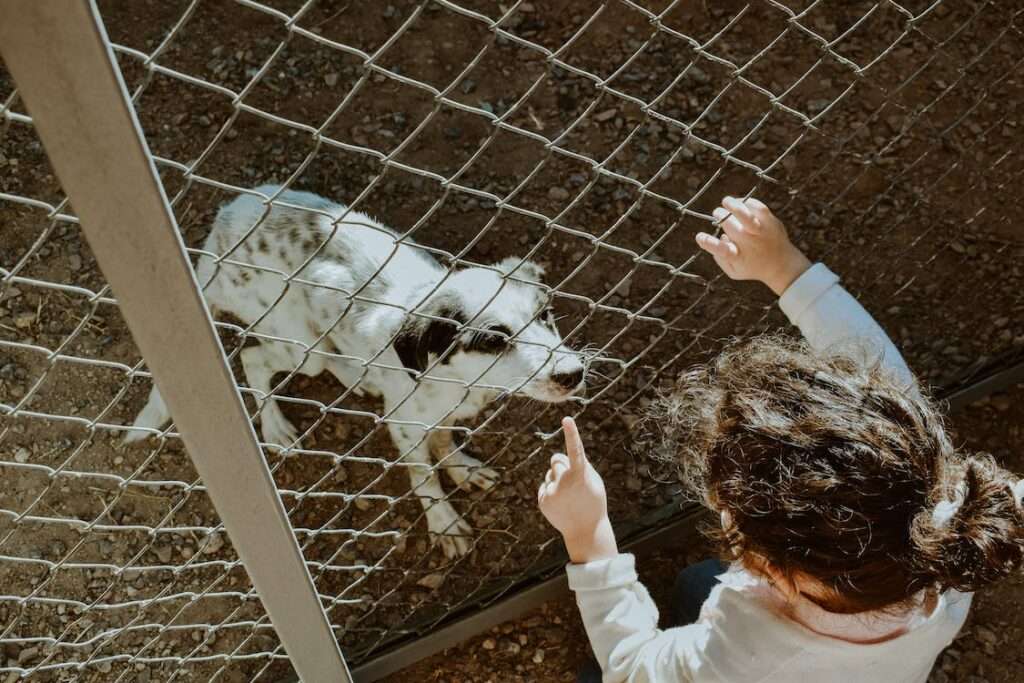18 Huge Red Flags When Adopting a Dog You Should Watch Out For
Are you ready to embark on an adventure filled with wagging tails, wet kisses, and unconditional love? Adopting a dog is an incredible journey that can bring immeasurable joy and companionship to your life. But before you dive headfirst into the world of dog adoption, it’s crucial to keep an eye out for the red flags that can make or break your furry happily-ever-after.
In this guide, we’ll equip you with the knowledge and insights to navigate the adoption process like a seasoned pro. From health and behavior to compatibility and shelter-specific considerations, we’ll unveil the red flags when adopting a dog that demand your attention and help you make informed decisions.
So, grab a leash, put on your detective hat, and get ready to explore the world of dog adoption while steering clear of potential pitfalls. By being alert to these red flags, you’ll ensure a tail-waggingly delightful experience for both you and your new canine companion.
Health Red Flags

When bringing a new furry friend into your life, it’s crucial to prioritize their health and well-being. Here are some health red flags to keep an eye out for when adopting a dog:
- Lethargy: Pay attention to their energy levels. If a dog appears consistently lethargic, lacks enthusiasm, or seems unusually tired, it could be a sign of underlying health issues. A healthy dog should be alert and have a good amount of energy.
- Excessive Coughing: Persistent coughing can be a cause for concern. It may indicate respiratory problems or issues with the heart. If you notice your potential new companion coughing frequently or experiencing difficulty breathing, it’s essential to have them examined by a veterinarian.
- Vomiting or Diarrhea: Digestive issues such as vomiting or diarrhea can be symptoms of various health conditions, including infections, dietary problems, or gastrointestinal disorders. These issues may lead to dehydration and nutrient deficiencies. It’s important to address these symptoms promptly to ensure your dog’s health and comfort.
- Lack of Appetite: A sudden loss of interest in food or a consistently poor appetite may indicate an underlying health problem. Dogs can experience reduced appetite due to dental issues, gastrointestinal discomfort, or systemic illnesses. Proper nutrition is vital for their overall well-being, so consult a veterinarian if you notice a significant change in their eating habits.
- Skin Issues: Skin problems, like rashes, hot spots, or excessive itching, may be a sign of allergies, infections, or parasites. These conditions can cause discomfort and impact a dog’s quality of life. Pay attention to any visible skin abnormalities and consult a veterinarian for an accurate diagnosis and appropriate treatment.
By being vigilant about a dog’s health before adoption, you can ensure you’re prepared for any financial or time commitments necessary to address their specific needs. Remember, early detection and proper medical care are key to maintaining your new furry friend’s health and happiness.
Behavioral Red Flags
Another important aspect to consider when adopting a dog is their behavior. Here are some behavioral red flags to watch out for:
- Aggressive Behavior: Aggression towards humans or other animals can pose safety concerns and may require professional intervention. It’s crucial to assess a dog’s temperament and history to ensure their behavior aligns with your home and lifestyle. Seek guidance from a professional dog trainer or behaviorist if aggression is observed.
- Excessive Barking or Destructive Behavior: Persistent barking or destructive tendencies, such as chewing furniture or excessive digging, may indicate underlying issues like anxiety, boredom, or a lack of proper training. Addressing these behaviors early on is essential to prevent frustration and maintain a peaceful environment for both you and your furry friend.
- Fearful Behavior or Excessive Timidity: Dogs displaying fearful behavior or excessive timidity may have experienced negative situations in the past. It’s crucial to provide a supportive and patient environment to help them overcome their fears gradually. Building trust and seeking professional guidance can assist in their emotional healing process.
- Separation Anxiety: Separation anxiety can lead to destructive behavior, excessive barking, or attempts to escape when the dog is left alone. It’s important to assess a dog’s separation anxiety levels and implement appropriate training and management strategies to help them feel secure and comfortable when you’re not around.
- Excessive Energy: A dog with high energy levels may require an active lifestyle and ample exercise. If you have a more sedentary lifestyle or limited time for physical activities, it’s crucial to consider a dog whose energy matches your routine. Ensuring their exercise needs are met is essential for their well-being and behavior.
Before adopting a dog, it is important to assess their behavior and seek professional help if necessary. Working with a professional trainer or behaviorist can help address any issues and ensure that the dog is happy and well-behaved in their new home.
Compatibility Red Flags
Adopting a dog is a big commitment, and it is important to ensure that you are compatible with the dog you are considering. Here are some compatibility red flags to watch out for:
- Lifestyle Differences: Dogs vary in energy levels, exercise needs, and temperaments. It’s important to find a dog whose lifestyle requirements align with yours. Consider whether you prefer an active dog to accompany you on outdoor adventures or a more laid-back companion for cozy evenings at home. Finding a compatible match will help ensure that both you and your new furry friend are content.
- Size and Space Requirements: Take into account the size of the dog and the space available in your living environment. If you reside in a small apartment or have limited outdoor space, it’s crucial to choose a dog breed or size that can comfortably thrive in such conditions. Adequate space and living arrangements are essential for a dog’s overall well-being.
- Compatibility with Other Pets or Family Members: If you have other pets or family members, their compatibility with the dog you’re considering is paramount. Some dogs have a natural inclination to get along well with others, while others may be more territorial or less tolerant. Consider the dynamics and personalities of your current pets and family members to ensure a harmonious integration into your household.
- Personal Preferences: Personal preferences such as shedding, barking, or specific grooming needs should be taken into account. Some individuals may have allergies or sensitivities to pet dander, making hypoallergenic breeds a better fit. Understanding and aligning with your preferences will contribute to a more enjoyable and seamless experience with your new canine companion.
By being aware of these compatibility red flags, you can increase the likelihood of finding a dog that perfectly complements your lifestyle, home, and personal preferences.
Shelter or Rescue-Specific Red Flags

Adopting a dog from a shelter or rescue organization can be a wonderful way to give a dog a second chance at a happy life. However, it is important to be aware of shelter or rescue-specific red flags. Here are some to watch out for:
- Lack of Transparency: Open and honest communication is vital when working with a shelter or rescue organization. Lack of transparency can be a cause for concern. Ensure that you have the opportunity to ask questions and receive all necessary information about the dog’s history, behavior, and any known medical conditions before proceeding with the adoption process.
- Limited Access to the Dog: Having limited access to the dog before adoption can make it challenging to assess their behavior and personality. Adequate interaction and observation time are essential for you to make an informed decision about whether the dog is a good fit for your home and lifestyle. It’s important to choose a shelter or rescue organization that allows for meaningful interactions with the dog before finalizing the adoption.
- Incomplete Medical History: An incomplete or vague medical history can raise concerns about the dog’s previous care and well-being. A responsible shelter or rescue organization should provide a comprehensive medical record that includes vaccinations, spaying/neutering status, and any known medical issues. It’s crucial to have a clear understanding of the dog’s health to ensure their ongoing care.
- Adoption Fees or Costs: Transparency regarding adoption fees and associated costs is essential. High adoption fees without proper explanation can be a red flag. A reputable shelter or rescue organization should clearly outline adoption fees and provide information about what is included, such as vaccinations, microchipping, or spaying/neutering. Understanding the financial commitment involved in owning a dog is crucial for a successful adoption.
By being mindful of these shelter or rescue-specific red flags and conducting thorough research on the organization you’re considering, you can help ensure a fair and transparent adoption process that prioritizes the well-being of the dog.
Conclusion
In conclusion, adopting a dog is an incredibly rewarding journey that requires thoughtful consideration and preparation. By being mindful of the red flags associated with adoption, you can ensure a successful and fulfilling experience for both you and your furry companion.
From health and behavior to compatibility and shelter or rescue-specific considerations, it’s essential to be vigilant throughout the adoption process. Taking the time to understand potential health issues, assess behavior, and ensure compatibility with your lifestyle and family dynamics sets the foundation for a strong and lasting bond.
When adopting from a shelter or rescue organization, transparency and open communication are crucial. Asking the right questions, gaining access to the dog, and receiving comprehensive medical records instill confidence in your decision and provide a solid understanding of the dog’s history and needs.
At BarkLikeMeow, we understand the significance of making informed choices when adopting a dog. Our commitment to providing valuable resources and expert guidance empowers you to navigate the adoption process with confidence. From understanding red flags to finding the perfect match, our comprehensive resources section is designed to support you every step of the way.
Frequently Asked Questions
Q: What are some red flags to look out for when adopting a dog?
A: There are several red flags that may indicate potential issues when adopting a dog. These include aggressive or fearful behavior, excessive barking or whining, signs of neglect or abuse, poor physical health, and a lack of socialization or training.
Q: How can I identify aggressive or fearful behavior in a dog?
A: Aggressive or fearful behavior can manifest in various ways, such as growling, snarling, snapping, or biting. A dog that constantly cowers, hides, or trembles in fear may also exhibit signs of aggression or fearfulness.
Q: What should I do if I notice signs of neglect or abuse in a dog I want to adopt?
A: If you suspect neglect or abuse, it’s important to report your concerns to the adoption organization or local animal control. They can investigate the situation and ensure the dog receives the necessary care and protection.
Q: Are there any health issues I should be cautious about when adopting a dog?
A: Yes, some health issues to watch out for include signs of malnutrition, untreated injuries or infections, abnormal weight loss, excessive itching or scratching, and difficulty breathing. It’s advisable to have a veterinarian perform a thorough health check-up before finalizing the adoption.
Q: How important is socialization and training in a dog?
A: Socialization and training are crucial for a dog’s overall well-being and behavior. Dogs that haven’t been properly socialized may display fear or aggression towards people, other animals, or new environments. Basic training helps establish boundaries, good manners, and a positive relationship between the dog and their new family.
Q: Can a dog’s breed influence potential red flags?
A: While every dog is an individual, certain breeds may have specific tendencies or traits that can affect behavior. It’s important to research and understand the breed characteristics and potential challenges associated with a specific breed before adopting.
Q: Should I consider a professional behavior assessment for a dog I want to adopt?
A: If you have concerns about a dog’s behavior or temperament, it can be beneficial to consult with a professional dog behaviorist or trainer. They can assess the dog’s behavior, provide guidance, and help determine if the dog is a suitable match for your home and lifestyle.
Q: Are there any resources available for assistance after adopting a dog?
A: Yes, many animal shelters and rescue organizations offer post-adoption support and resources. They may provide training classes, behavior consultations, or recommendations for local trainers. Online communities and forums can also be valuable for sharing experiences and seeking advice from other dog owners.
Remember, adopting a dog is a long-term commitment, so it’s crucial to carefully consider any red flags and ensure the dog’s well-being aligns with your lifestyle and capabilities.
References
- “A Guide to Choosing the Right Dog from a Shelter” – 3LostDogs https://www.3lostdogs.com/a-guide-to-choosing-the-right-dog-from-a-shelter/
- “Picking the Right Dog for Your Lifestyle” – PAWS https://www.paws.org/resources/picking-the-right-dog-for-your-lifestyle/
- “Before You Adopt a Pet” – Scollar https://scollar.com/blogs/blog/before-you-adopt-a-pet
- “Red Flags When Adopting a Dog” – Insider https://www.insider.com/red-flags-adopting-a-dog-2018-10
- “Things I Wish Someone Told Me Before I Adopted a Dog” – Treehugger https://www.treehugger.com/things-i-wish-someone-told-me-before-i-adopted-a-dog-4864089




